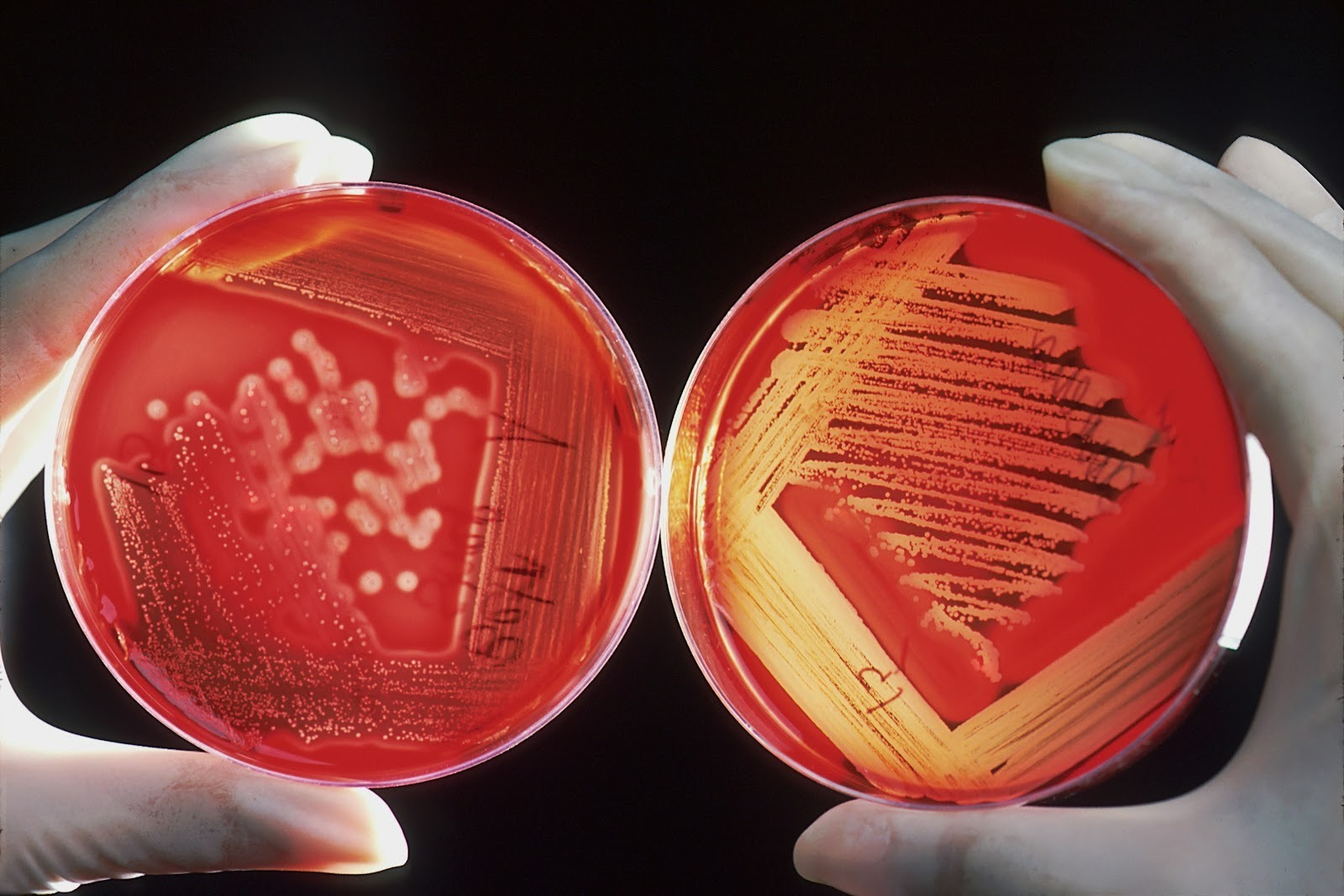Oral Microbiome: Health Studies & Diagnostics
Oral microbiome sequencing uses advanced technologies to examine the complex microbial communities within the human oral cavity, providing...
.webp)
The human microbiome is a complex ecosystem of microorganisms residing in and on the human body, playing a pivotal role in human health and disease. Microbiome research has advanced rapidly over the last decade, powered by innovative human microbiome sequencing applications, expanding our understanding from basic microbial ecology to actionable clinical uses.
This blog explores the scientific foundations, technological breakthroughs, clinical implementations, emerging therapeutic applications, and ongoing challenges of microbiome studies, with a special focus on critical terminology and advancements shaping the field.
Power your research with Cmbio Human Microbiome Profiling
The foundation of microbiome science lies in the intricate symbiotic relationship between human hosts and their microbial communities. The Human Microbiome Project, a major research network consortium, catalyzed large-scale studies of human microbiota, enabling comparative analysis between healthy and diseased states and revealing the diversity and functional composition of microbial species inhabiting different body sites. The human gut microbiome and human gut microbiota, for instance, have been associated with digestive processes, immune function, and even neurological health.
Multi-omic approaches allow researchers to integrate insights from DNA sequencing, RNA sequencing, and metabolomics, offering a panoramic view of microbial diversity and entire microbial communities. Next-generation sequencing applications such as 16S rRNA sequencing, metagenomic sequencing, and targeted sequencing methods have replaced traditional Sanger sequencing and opened up high throughput sequencing of complex microbial communities from human microbiome samples.
These advanced sequencing technologies enable researchers to decode nucleic acids, assemble microbial genomes, and perform functional analyses on data from multiple sequencing platforms.
Recent advancements in research technologies have propelled microbiome studies into new realms:
Fecal Microbiota Transplantation has become a highly effective intervention for Clostridioides difficile infections, with cure rates surpassing 90%, as supported by robust sequencing data and human microbiome analysis. The FDA-approved products like Rebyota and VOWST exemplify successful translation of microbiome research into clinical therapeutics.
FMT is also being explored for preventing graft-versus-host disease and managing certain inflammatory bowel diseases, with ongoing research refining patient selection and safety protocols.
Live Biotherapeutic Products represent the next generation of microbiome-based therapies, frequently developed through microbial sequencing and characterization of defined microbial consortia. LBPs are subject to strict regulatory and manufacturing standards, requiring standardization across different sequencing platforms and methodologies to ensure batch effect management and reproducibility.
The human gut microbiome can significantly modify responses to cancer immunotherapy, particularly checkpoint inhibitors. Comparative analysis of patients’ gut microbiota has revealed that certain bacterial species improve immunotherapeutic outcomes, and ongoing clinical trials leverage high throughput sequencing and metagenomic analysis to optimize these interactions.

The gut-brain axis underpins emerging treatments for conditions such as Parkinson’s disease, autism spectrum disorder, depression, and anxiety. Human microbiome studies indicate that alterations in gut microbiome structure influence neurological signaling pathways, possibly mediated by microbial metabolites recognized through comprehensive microbiome profiling and functional composition studies.
Microbiome-based approaches for metabolic diseases, including type 2 diabetes, obesity, and non-alcoholic fatty liver disease, are being personalized by referencing individual microbiome profiles using deep sequencing technologies. Precision nutrition and targeted dietary recommendations rely on bioinformatics analysis and comparative analysis of microbial communities, aiming to modify microbial community function for optimal health outcomes.
Human Microbiome Profiling Services
Pharmacomicrobiomics investigates how the human microbiome affects drug metabolism, leveraging targeted sequencing and comparative analysis for personalized dosing strategies. This field employs generation sequencing data to model how nucleic acids from microbial communities interact with pharmaceuticals, aiming to reduce adverse effects and improve treatment efficacy.
Machine learning-based microbiome analysis supports discovery and validation of microbial biomarkers for disease risk prediction, early diagnosis, and therapeutic monitoring. Customized probiotics, precision nutrition, and lifestyle interventions utilize human microbiome sequencing applications to optimize health and disease outcomes on a patient-specific basis.
Customized probiotic development, targeted dietary recommendations, and lifestyle modification strategies are becoming integral to treatment personalization protocols. These approaches aim to harness individual microbiome data to deliver tailored healthcare solutions.
Despite significant advancements, several challenges persist:
Translating research into clinical practice involves overcoming obstacles such as:
The gut microbiome can act as a reservoir for resistance genes, necessitating the development of stewardship approaches and resistance monitoring protocols. Alternative intervention strategies are being explored to mitigate this risk.
Microbial sequencing applications involve amplicon sequencing of conserved regions, metagenomic sequencing technology, and high throughput sequencing on different sequencing platforms for comparative analysis across populations. Bioinformatics analysis of sequencing data allows assessment of species diversity, functional composition, and microbial characterization, linking entire microbial communities to human health and disease.
Human microbiome samples processed through various sequencing techniques (e.g., 16S rRNA sequencing, RNA sequencing, DNA sequencing) yield data for genome assembly and microbial genomics research. These methods help elucidate operational taxonomic units, exact sequence variants, and bacterial communities in health and inflammatory bowel diseases, respiratory diseases, and infectious diseases.
Understanding the human microbiome's complexities offers promising avenues for medical advancements. The following key points summarize the article's insights:
The journey into microbiome research is not without its challenges, yet the potential benefits in terms of health and therapeutic interventions are monumental. Continued exploration and innovation are essential to fully harness these possibilities and translate them into practical, patient-centered solutions.
Cmbio offers comprehensive solutions for your microbiome research needs. Our services include project design, method selection, and sequencing, with a focus on the human health and gut microbiome, oral microbiome, and skin microbiome research.
Explore our services:
Data analysis is central to transforming raw sequencing data into actionable biological insights. In microbiome research, bioinformatics workflows process 16S rRNA gene sequencing data to identify bacterial species, assess microbial diversity, and correlate microbial profiles with human diseases.
Advanced computational models and machine learning techniques also help in predicting disease risk, identifying microbial biomarkers, and facilitating personalized treatment strategies based on multi-omics data integration and comparative data analysis.
The 16S rRNA gene serves as a molecular fingerprint for identifying and classifying bacteria within complex microbial communities such as the human gut microbiome. Its conserved regions enable targeted sequencing and high throughput analysis, while variable regions aid in distinguishing specific microbial taxa across different health and disease conditions.
This gene is fundamental for microbial taxonomy, enabling reliable comparisons of microbial composition across population-based and clinical microbiome studies.
Accurate and standardized sample collection is crucial for maintaining the integrity of microbiome samples used in sequencing and downstream data analysis. Errors in collection or preservation can alter microbial community structure, thereby skewing results and interpretations related to human diseases. Consistent sample processing, DNA extraction, and sequencing depth optimization ensure that observed microbial variations truly reflect biological differences rather than experimental artifacts, improving reproducibility and diagnostic accuracy in microbiome-based clinical research.

Oral microbiome sequencing uses advanced technologies to examine the complex microbial communities within the human oral cavity, providing...
.webp)
The gut microbiome, an intricate ecosystem of trillions of microorganisms living throughout the human gastrointestinal tract, plays a crucial role in...

The skin is the largest organ of the human body, serving as a crucial barrier between our internal systems and the external environment. The human...